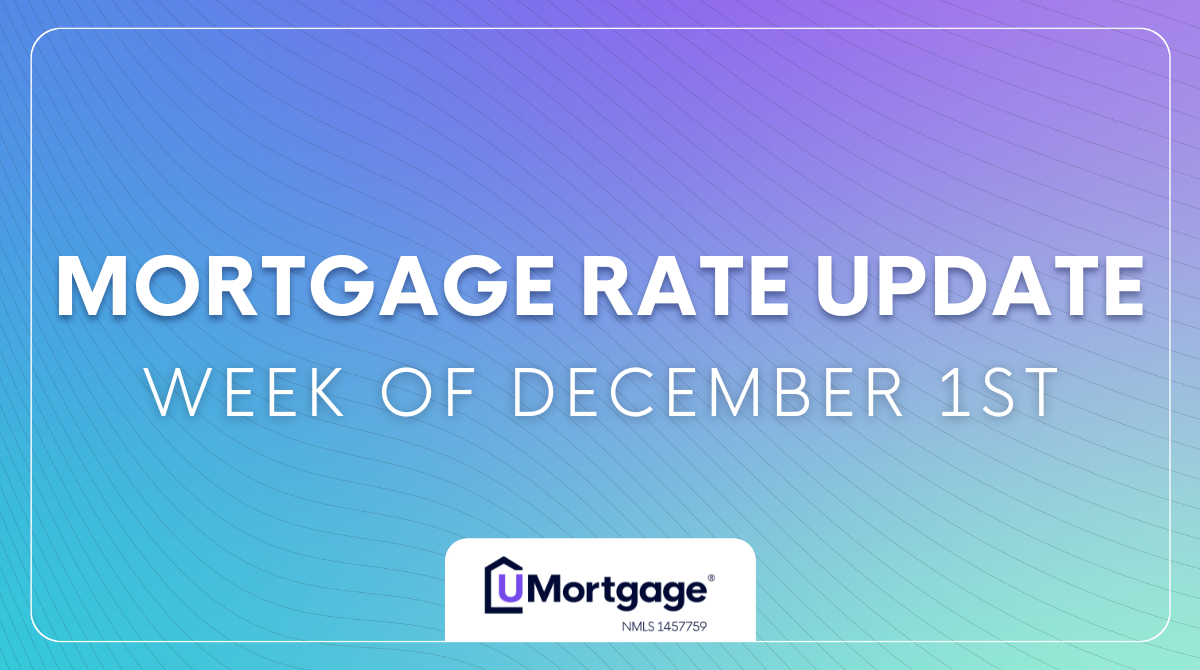

Mitch Guidry
Meet Mitch!
As your trusted UMortgage Loan Originator, my goal is to simplify the mortgage process to make your home loan experience easy to navigate! Please reach out so I can help start your home financing journey.
Serving Homebuyers In:
- California
- Florida
- Ohio
- Texas
- Washington
Mortgage Calculators
Monthly Payment
Find your monthly payment
What does a monthly mortgage payment look like for you? Get an estimate with some basic information.
Estimated Monthly Payment
The UMortgage mortgage calculators are for estimation purposes only. This is not a commitment to lend. For an exact quote based on your individual financial circumstances, please contact me.
Affordability
What is your budget?
Curious about how much you can afford to spend on a home? Use our calculator to get an estimate on your maximum budget.
Maximum Home Price
Maximum Monthly Payment
The UMortgage mortgage calculators are for estimation purposes only. This is not a commitment to lend. For an exact quote based on your individual financial circumstances, please contact me.
Refinance
Should you Refinance?
Refinancing might save money on your monthly mortgage payments, putting cash in your pocket. With some basic information from you, we can help decide if this is a good path for you.
Monthly Savings
Total Savings
The UMortgage mortgage calculators are for estimation purposes only. This is not a commitment to lend. For an exact quote based on your individual financial circumstances, please contact me.
VA Entitlement & Payments
Discover Your Buying Power With Our VA Home Loan Calculator!
If you are a veteran, an active-duty member of the military, or the spouse of a current or former military member, you are eligible to purchase a home with your VA home loan benefit! By using the calculator below, you can get a glimpse into your buying power and the estimated monthly payment of your VA loan as you start planning your homebuying journey.
Estimated Monthly Payment
Required Down Payment
Limit
$0
Entitlement Used
$0
Available Entitlement
$0
No Limit
How is my monthly payment calculated?
The UMortgage mortgage calculators are for estimation purposes only. This is not a commitment to lend. For an exact quote based on your individual financial circumstances, please contact me.
Your Mortgage Questions, Answered!

How to Consolidate Debt Using Your Home Equity
If you’re like many homeowners holding off on refinancing because you don’t want to lose your low mortgage rate, it might be time to look at the bigger picture. Yes, rates aren’t what they were a few years ago. However, credit card debt is at record highs, with average interest rates north of 20%. For households juggling thousands in revolving debt, it’s not the mortgage rate that’s crushing monthly cash flow; it’s those high-interest minimum payments. If you’re feeling financially squeezed, loan products like a cash-out refinance or home equity line of credit (HELOC) can help you take control by using your home’s equity to consolidate debt and reclaim hundreds, sometimes thousands, in monthly breathing room. Brian Cardenas, UMortgage Loan Originator, has been using these strategies to save his clients hundreds of dollars per month. “Money is one of the biggest stressors that we experience in our lives,” said Cardenas. “People are sitting on a ton of equity and a really low interest rate on their home. But they also have this albatross around their neck of this high-interest debt that’s just crushing them.” According to the Federal Reserve Bank of New York, total outstanding credit card debt stood at approximately $1.21 trillion by the end of Q4 2024 – a $45 billion increase from the prior quarter, marking a 7.3% year-over-year rise. At an average APR of 21.37%, as reported by the Federal Reserve in February 2025, that extra debt adds up fast. With a cash-out refi or HELOC, you’re using the money you’ve already invested in your home instead of taking on more debt with high-interest credit cards or personal loans. Here’s how each works, so you know your options before you commit. What is a Cash Out Refinance and How Does One Work? A cash-out refinance allows homeowners to replace their current mortgage with a new loan that provides extra funds by tapping into the equity homeowners have built in their property. Essentially, homeowners can "cash out" a portion of their equity to use as they see fit. This process works by allowing homeowners to borrow against their home equity, which is the difference between the home’s appraised market value and the remaining mortgage balance. By taking out a larger loan, the borrower receives the excess in cash after paying off the original mortgage. For a clearer picture of how this can work, use UMortgage’s Refinance Calculator to see what a cash-out refi might look like for you. See our Cash-Out Refinance loan product page to learn more. What is a HELOC Loan and How Does One Work? A Home Equity Line of Credit (HELOC) is a loan that lets you borrow against your home’s equity without replacing your existing mortgage. Think of it like a credit card that can be used, repaid, and used again over time. This flexible borrowing option is based on the difference between the home’s current market value and the outstanding mortgage balance. Homeowners can draw from the line of credit as needed, whether for home improvements, debt consolidation, or other significant expenses, and only pay interest on the amount they use. See our HELOC loan product page to learn more. Why You Should Consult with an Expert Before You Act Accessing your equity is just like any other mortgage product: there’s no one-size-fits-all option. That’s why it’s so important to consult with a mortgage expert before you pull the trigger. Working with a UMortgage Loan Originator takes out the guesswork; you’ll have someone in your corner who will present you with all your options so you can make an informed decision that works best for your financial future. “After crunching all the numbers, I found out that there were some considerable savings that we can present to this borrower and help relieve some of the financial burdens that they’re experiencing every single month,” said Cardenas regarding a client whose debt he consolidated earlier this year. “We’re just simply presenting options and letting the consumer decide which, if any of these options, is going to fit their needs best.” If you want to discover your options to consolidate your debt with your home’s equity, or learn more about HELOC rates, fill out this form to connect with a UMortgage Loan Originator in your area. They’ll reach out shortly after you submit to start the process.

Housing Market Update | Week of December 1st
We’re on the other end of the Thanksgiving holiday, with just 10 days until the December Federal Reserve Meeting and important employment and inflation data coming before then. After a quiet week last week, we have the ADP’s private payroll report on Wednesday and our delayed September PCE inflation report on Friday. These two reports could cause volatility in either direction, depending on the data. As of right now, markets are still pricing in a rate cut in next week’s Fed Meeting and could face volatility if those expectations change. Last Week's Mortgage Rate Recap Rates Were Flat Last week didn’t have much market-moving data before the Thanksgiving holiday. The most significant piece of data was our delayed September Producer Price Index (PPI) inflation report. Headline PPI came in right in line with estimates, with a 0.3% rise in September. Core PPI, which strips out food and energy prices, came in at 0.1%, below forecasts of a 0.2% rise. This data saw the 10-year dip slightly below 4% when markets closed for Thanksgiving. This Week's Mortgage Rate Forecast Rates Could Be Volatile Following a calm holiday week, volatility could hit the markets later this week as we get some final inflation and labor data ahead of next week’s Fed Meeting. The 10-year is up this morning after news of a sharp jump in Japanese government bond yields and comments from Bank of Japan Governor signaling a rate increase this month. Japan is a major buyer of overseas bonds, which affects global bond markets. On the continent, we have several pieces of economic data coming this week, as well as a speech from Fed Chairman Jerome Powell tonight, all of which could add a bit more volatility to U.S. markets. On Wednesday, we’ll get the ADP’s monthly private payroll report. In lieu of monthly BLS data, this private employment data has much more market impact than usual. Markets expect the ADP to report 40,000 jobs created, but its weekly job insights showed that on average, there were 13,500 job losses each week in the four weeks ending November 8th. If this report comes in below expectations, we could see rates improve. On Friday, we’ll get the September Personal Consumption Expenditures (PCE) report, the Fed’s favorite tool for measuring inflation. Inflation has recently been a greater focus for the Fed as it’s been inching higher this year. The report is expected to show PCE remain at 2.9% year-over-year. If the report surprises to the upside, it could hurt mortgage rates and the odds of a rate cut next week. If you have any questions or want some real-time market analysis from a mortgage expert, follow this link to connect with a UMortgage Loan Originator near you!

How a Cash-Out Refinance Can Help Fund Your Holiday Spending
The holiday season is approaching, and for many, this time of year can put families under financial strain. Between gifts, travel, and festive gatherings, the expenses can quickly add up, leaving some feeling stretched thin. For homeowners, a cash-out refinance can be an effective way to access home equity, providing extra funds to cover holiday costs without relying on high-interest credit cards or personal loans. By using the equity they've built, homeowners can enjoy a more relaxed and financially stable holiday season. What is a Cash-Out Refinance and How Does One Work? A cash-out refinance allows homeowners to replace their current mortgage with a new loan that provides extra funds by tapping into the equity homeowners have built in their property. Essentially, homeowners can "cash out" a portion of their equity to use however they like—whether it’s to pay off high-interest debt, fund renovations, or, in this case, cover holiday expenses. This process works by allowing homeowners to borrow against their home equity, which is the difference between the home’s appraised market value and the remaining mortgage balance. By taking out a larger loan, the borrower receives the excess in cash after paying off the original mortgage. For a clearer picture of how this can work, use UMortgage’s Refinance Calculator to see what a cash-out refi might look like for you. For a more in-depth quote, fill out this form to connect with a UMortgage Loan Originator or reach out to your existing UMortgage partner. Home equity is a valuable asset that accumulates over time as mortgage payments are made and property values appreciate. With a cash-out refinance, homeowners can leverage this value without selling their property, providing access to funds when needed most. The Benefits of a Refi for Debt Consolidation & Holiday Spending While credit cards might seem like a tempting way to cover holiday expenses, the high interest rates can quickly make seasonal spending hard to manage. According to the Federal Reserve, the average credit card interest rate is currently around 22.76%, which can lead to a cycle of unmanageable debt. “There’s a lot of high interest out there, and people are carrying more debt than they’ve ever carried,” says Jimmy Hobson, UMortgage’s National Sales Leader. “A cash-out refinance not only helps you avoid this kind of debt but also gives you a way to tap into your home’s equity that you’ve already built through monthly mortgage payments.” With a cash-out refi, instead of taking on even more debt, you’re using the money you’ve already invested instead of relying on high-interest credit cards or personal loans. After you’ve closed your refinance, you'll get some breathing room before your first mortgage payment, typically due on the first of the month following a full 30 days after closing. For example, if you close on November 14th, you won’t make your first mortgage payment until January 1st. This means you could benefit from a month without a mortgage payment, freeing up extra funds for holiday spending or unexpected expenses. How to Know You’re Eligible for a Cash-Out Refinance Before you start planning your refinance, assess your eligibility and whether it makes sense for your current financial picture. Here are some things to consider: Assess Your Home Equity You should start by calculating your home equity to determine if you qualify for a refi. Your equity is the difference between your home’s current market value and what you still owe on your mortgage. You’ll need an appraisal to determine your home’s market value. A UMortgage Loan Originator will be able to connect you with a reliable appraiser in your area to help you determine the equity owned on your home. Reviewing Your Long-Term Goals There are many benefits to a refinance, but ultimately, you should only do it if it fits your long-term goals. Would it be more beneficial to use your home’s equity to invest, make home improvements, or save for the future? Taking out funds now can affect your mortgage balance and monthly payments, so consider how it aligns with your plans and whether it will keep you on track to achieve financial stability or growth. Get Connected with a UMortgage Loan Originator A UMortgage Loan Originator is your key to personalized mortgage advisory that puts your long-term financial health first. Once you connect with your LO, they’ll walk you through every step, from eligibility to planning, and ultimately unlock your home’s potential, giving you a smart, effective option for covering seasonal expenses. Follow this link and fill out the form to get connected with a UMortgage LO in your area. A cash-out refinance lets you tap the equity you've already built in your home, helping cover seasonal expenses while keeping your financial health in check. Whether for gifts, travel, or end-of-year projects, using your home’s value wisely can make all the difference in enjoying a stress-free holiday season. Follow the link above to see if this option will work for you this holiday season!
Serving Homebuyers In:
- California
- Florida
- Ohio
- Texas
- Washington
